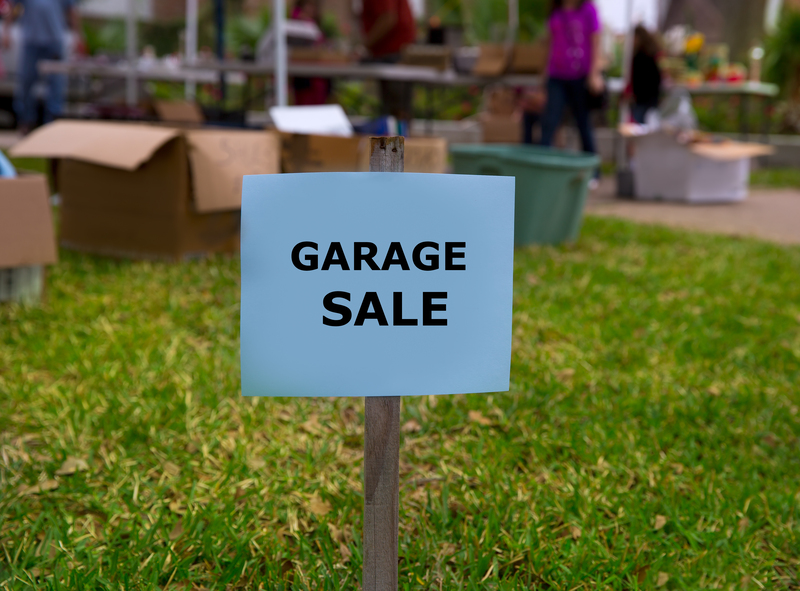Streamlined Options for Discarding Pots
Posted on 07/06/2024
Pots are essential tools in the kitchen, used for cooking a variety of dishes. While they serve an important purpose, pots can also take up valuable space and become cluttered in our kitchens. As we strive towards a more organized and efficient lifestyle, it is important to have streamlined options for discarding pots that we no longer need or use. In this article, we will explore some easy and responsible ways to declutter and dispose of pots.
Donate to Charity or Food Banks
One of the most impactful ways to discard your unwanted pots is by donating them to charity or food banks. These organizations often have programs that distribute kitchen supplies to families and individuals in need. By donating your pots, you not only declutter your kitchen but also help others in your community. It's a win-win situation! Just make sure the pots are in good condition and thoroughly cleaned before donating.

Recycling
Recycling is another environmentally friendly option for getting rid of old pots. Most pots are made of aluminum or stainless steel, both of which are recyclable materials. Contact your local recycling center to find out their specific guidelines on recycling pots. Some centers may require you to separate the handles from the pot or remove any non-metal parts such as rubber handles.
Sell or Trade-In
If your pots are still in good condition, consider selling them through online marketplaces or trading them in at kitchenware stores. Many stores offer trade-in programs where you can exchange your old pots for store credit towards purchasing new ones. This option not only eliminates clutter but also allows you to upgrade your cookware collection without breaking the bank.
Hazardous Waste Disposal
Some types of cookware, such as non-stick pans, contain chemicals that can be harmful if disposed of incorrectly. If you have any non-stick pots that are chipped or damaged, they should be disposed of as hazardous waste. Contact your local waste management service to find out the proper way to dispose of these pots to protect the environment and public health.
Pros and Cons
Each option for discarding pots has its own pros and cons. Donating to charity or food banks helps those in need and reduces waste in landfills. Recycling is environmentally friendly but may require some preparation. Selling or trading-in your pots allows you to upgrade your cookware collection but may take more effort than simply donating or recycling. Hazardous waste disposal ensures the safety of the environment and public health but can be a bit more complicated.
Tips
Here are some tips to make the process of discarding pots smoother:
- Before getting rid of any pots, assess their condition and decide if they can be donated, recycled, sold, or disposed of as hazardous waste.
- Clean your pots thoroughly before donating, recycling, or selling them.
- If possible, try to reuse old pots for alternative purposes such as storage containers or planters.
- Consider investing in multi-purpose cookware sets to avoid accumulating unnecessary pots in the future.

Takeaways
Streamlined options for discarding pots include donating to charity or food banks, recycling, selling/trading-in, and hazardous waste disposal. Each method has its own benefits and considerations. To make the process easier, assess the condition of your pots before deciding on a disposal method, clean them thoroughly before donating/selling, and consider reusing them for other purposes.
Conclusion
In conclusion, having streamlined options for discarding pots allows us to declutter our kitchens while being mindful of the environment and those in need. Whether you choose to donate, recycle, sell/trade-in, or dispose of as hazardous waste, remember to clean them beforehand and consider alternative uses for old pots. With these responsible and efficient methods, you can say goodbye to kitchen clutter and hello to a more organized space.
Latest Posts
Enhance Business Efficiency with Waste Collection

